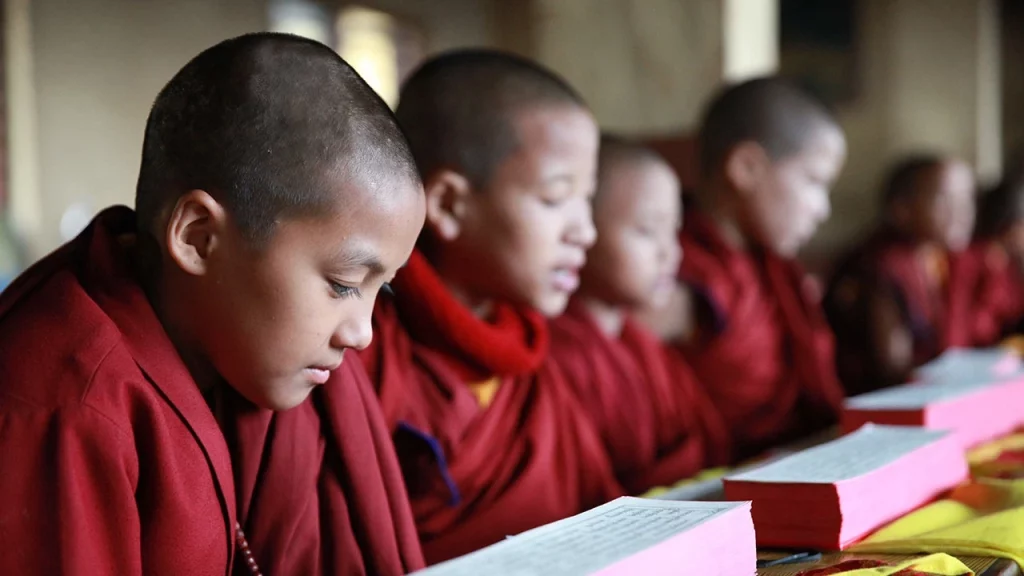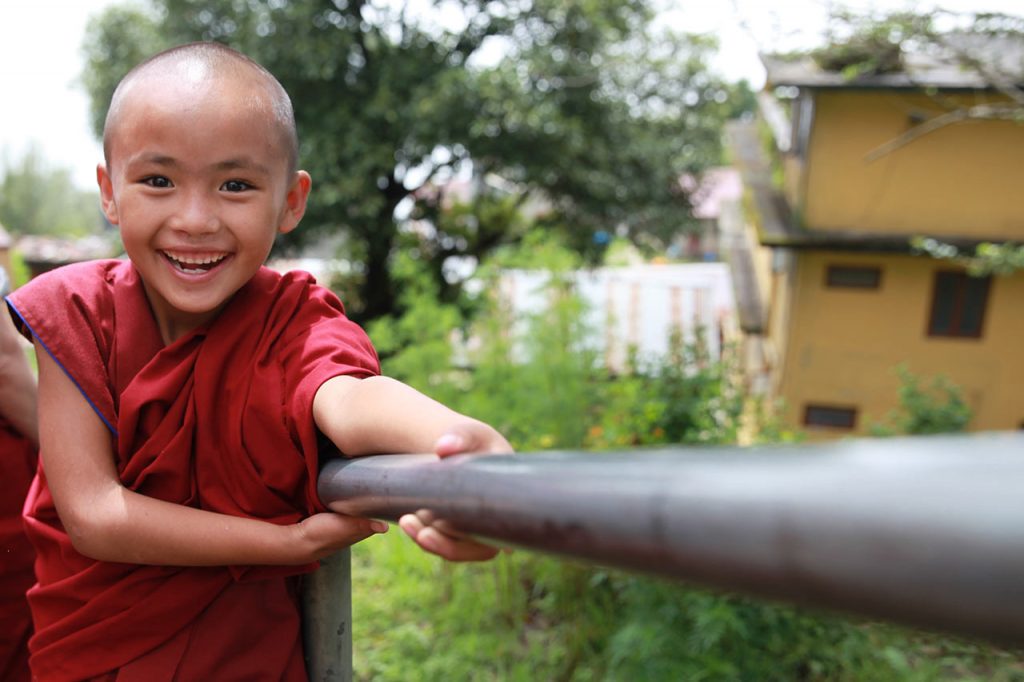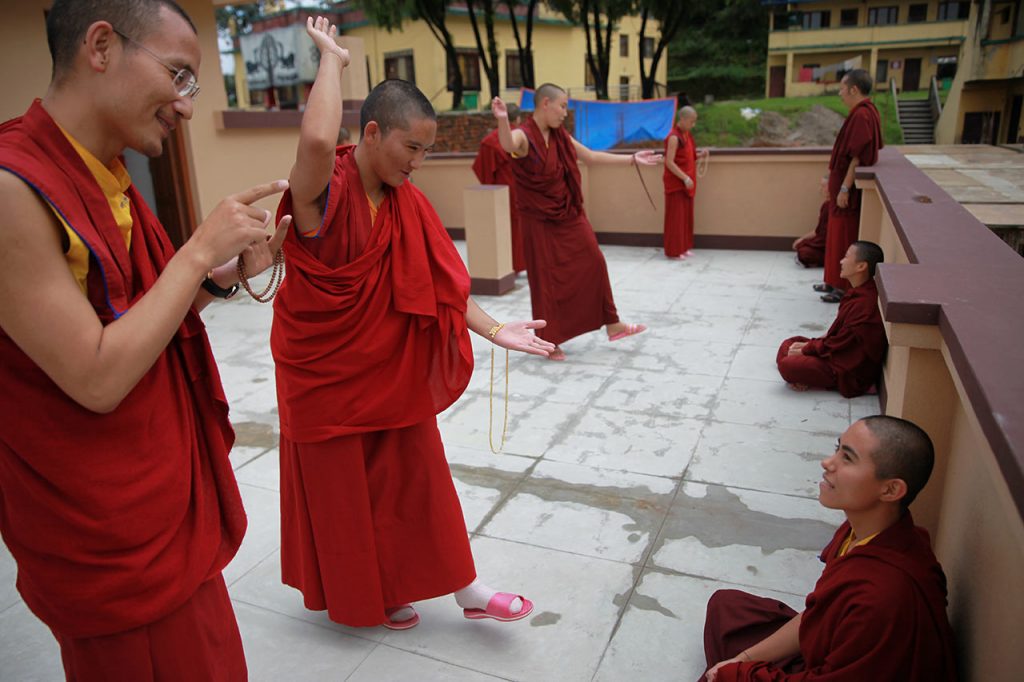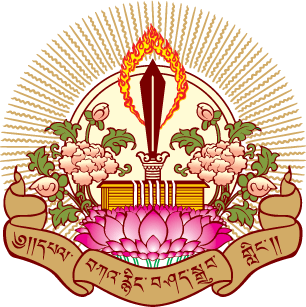Buddhist educational opportunities for nuns have historically trailed those available to monks by centuries. Nagi Gompa Nunnery is committed to rectifying this disparity by offering nuns educational and practice opportunities equal to their male counterparts.
At Nagi Gompa, young nuns enroll in an extensive monastic educational program spanning eight years. In 2016, mirroring the nine-year university program offered to Ka-Nying monks, Nagi Gompa introduced a similar curriculum, empowering nuns to become adept scholar-practitioners.

Beginning with foundational studies, nuns immerse themselves in elementary Dharma texts and language courses covering Tibetan, Nepali, and English. Advancing to middle school, they refine their writing skills while delving into significant Buddhist classics such as “The Way of the Bodhisattva” and “The Jewel Ornament of Liberation.” Additionally, they master traditional ritual arts, notably chod, a form of musical meditation showcased globally.

Following mandatory primary and secondary education, select nuns pursue the rigorous nine-year university program. Renowned Khenpos from Ka-Nying Shedrub Ling rotate teaching positions at Nagi Gompa, facilitating intensive study sessions lasting nine months annually, five-and-a-half days per week, with rigorous examinations. Engaging in debates, contemplation, and study of Buddha’s teachings, nuns enrich their practice environment with scholastic depth.

To bolster these educational endeavors, we aim to construct new, modern classrooms, fostering an environment conducive to deep learning. Empowering nuns as custodians of Buddhist teachings not only elevates their scholarly pursuits but also profoundly impacts the Buddhist community worldwide.
Join us in supporting Nagi Gompa nuns by facilitating further opportunities for them to engage in scholarly pursuits traditionally reserved for monks.

